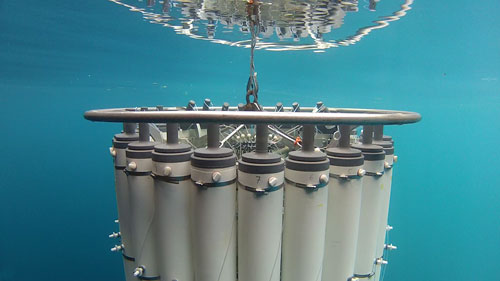
Follow the fish
10 October 2013, Vol 502, Nature, Comment
A global, long-term programme of ecological monitoring is needed to track ocean health, say J. Anthony Koslow and Jennifer Couture.
Next year, the United Nations aims to complete its first World Ocean Assessment, a process akin to the regular reporting of the Intergovernmental Panel on Climate Change. The assessment is timely and crucial: the world’s oceans are threatened by many anthropogenic stressors, from pollutants, nutrient runoff and overfishing to warming, deoxygenation and acidification1.
Current ocean-observation programmes are not fit for purpose. Variables such as temperature, salinity and chlorophyll levels are monitored globally by satellites, water-column-profiling floats and moored sensor arrays. Ecological monitoring of marine systems, by contrast, is woefully inadequate and has been too long dismissed as too hard and too costly. As a result, the phytoplankton, zooplankton and micronekton (krill and small fish) that comprise the bulk of ocean ecosystems are examined on an ad hoc basis, rather than systematically. Most natural ocean processes vary on annual to decadal timescales. To identify shifts resulting from climate change, observations need to span 50 years or more. Neglect of ecological monitoring has left the oceanscience community effectively bereft of such long-term data. The Census of Marine Life, for example, is an international effort that aims to characterize marine biodiversity, but over only a decade. Today, there are just two ecological data sets that are sufficiently long to fit the bill — and each has limitations. A global ocean-observation network needs to be established within the next five years to provide baselines against which ocean health can be assessed in the coming century. Alongside physical oceanographic data, such a network must track the status of species in marine ecosystems around the world.
For the complete article & to read more,read vol 502 Nature Magazine 10 October 2013
or download the article PDF.
1. Roberts, C. The Ocean of Life: The Fate of Man and the Sea (Viking Adult, 2012).